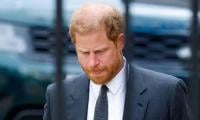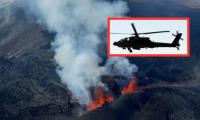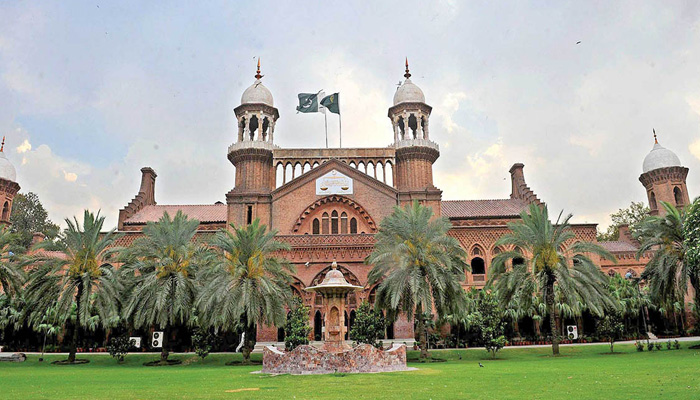LHC takes up plea against conviction of Nawaz, Maryam today
LAHORE: The Lahore High Court will take up on Thursday (today) an application challenging conviction of former prime minister Nawaz Sharif, his daughter Maryam Safdar and Muhammad Safdar in Avenfield case on the basis that the NAB law lapsed and the conviction under it was not sustainable in the eye of law.
Justice Abid Ali Qureshi will hear the application moved by Lawyers’ Foundation for Justice through Advocate AK Dogar. Previously, Justice Abid Aziz Sheikh asked the lawyer-petitioner to affix the NAB court’s verdict with his plea against conviction of Nawaz Sharif, Maryam Safdar and Captain (retd) Muhammad Safdar.
Advocate Dogar in his main petition had questioned the NAB Ordinance 1999 and functioning of the courts under the law. He said the NAB court which convicted former prime minister Nawaz Sharif had no jurisdiction to decide the matter as the law under which it had been functioning had lapsed long ago. He pleaded the high court to suspend the operation of the accountability court’s decision as the court had been functioning under a non-extent law.
Former military dictator retired Gen Pervez Musharraf promulgated the NAB ordinance to arrest the politicians. He said Musharraf took the charge in October while the NAB law came in November—just one month—in order to curb the politicians. The lawyer argued Under Article 270-AA of the Constitution through 18th amendment, the PCO No.1 of 1999 was declared without lawful authority and of no legal effect. He contended that the NAB ordinance 1999 contends that the ordinance was promulgated by then military dictator/president retired Gen Pervez Musharraf under Provisional Constitutional Order (PCO) No.1 of 1999 as well as order No.9 of 1999.
Order No.9, he said, was promulgated only to amend PCO No.1 of 1999 with the insertion of section 5A (1) in it to the effect that limitation of 120 days prescribed under Article 89 of the Constitution to any ordinance by the president will not be applicable to the laws made under PCO No.1 of 1999. The lawyer contended that as the PCO No.1 was declared without lawful authority and of no legal effect, the amendments in it made under-order No.9 of 1999 would also lapse and therefore, the limitation period of 120 days prescribed under Article 89 would be applicable to the NAB ordinance.
The lawyer said certain laws which were still enforced, shall continue to remain enforced unless amended by the competent legislation under sub-article 2 of Article 270-AA of the Constitution.
He prayed to the court to the NAB ordinance ceased to be the law and had become non-existent and a dead letter. He also prayed to the court to set aside all those proceedings being carried out by the NAB courts under the dead law of NAB ordinance.
-
 Jelly Roll Reveals How Weight Loss Changed Him As A Dad: 'Whole Different Human'
Jelly Roll Reveals How Weight Loss Changed Him As A Dad: 'Whole Different Human' -
 Prince Harry Gets Emotional During Trial: Here's Why
Prince Harry Gets Emotional During Trial: Here's Why -
 Queen Camilla Supports Charity's Work On Cancer With Latest Visit
Queen Camilla Supports Charity's Work On Cancer With Latest Visit -
 Dove Cameron Opens Up About Her Latest Gig Alongside Avan Jogia
Dove Cameron Opens Up About Her Latest Gig Alongside Avan Jogia -
 Petition Against Blake Lively PGA Letter Gains Traction After Texts With Taylor Swift Revealed
Petition Against Blake Lively PGA Letter Gains Traction After Texts With Taylor Swift Revealed -
 Netflix Revises Warner Bros. Deal To $83 Billion: All-cash Offer
Netflix Revises Warner Bros. Deal To $83 Billion: All-cash Offer -
 Prince Harry Mentions Ex-girlfriend Chelsy Davy In UK Court
Prince Harry Mentions Ex-girlfriend Chelsy Davy In UK Court -
 David, Victoria Beckham 'quietly' Consulting Advisers After Brooklyn Remarks: 'Weighing Every Move'
David, Victoria Beckham 'quietly' Consulting Advisers After Brooklyn Remarks: 'Weighing Every Move' -
 Meta's New AI Team Delivered First Key Models
Meta's New AI Team Delivered First Key Models -
 Prince Harry Defends Friends In London Court
Prince Harry Defends Friends In London Court -
 AI May Replace Researchers Before Engineers Or Sales
AI May Replace Researchers Before Engineers Or Sales -
 Christina Haack Goes On Romantic Getaway: See With Whom
Christina Haack Goes On Romantic Getaway: See With Whom -
 Consumers Spend More On AI And Utility Apps Than Mobile Games: Report
Consumers Spend More On AI And Utility Apps Than Mobile Games: Report -
 Aircraft Tragedy: Missing Tourist Helicopter Found Near Japan Volcano Crater
Aircraft Tragedy: Missing Tourist Helicopter Found Near Japan Volcano Crater -
 Taylor Swift Lands In Trouble After Blake Lively Texts Unsealed
Taylor Swift Lands In Trouble After Blake Lively Texts Unsealed -
 'Prince Harry Sees A Lot Of Himself In Brooklyn Beckham'
'Prince Harry Sees A Lot Of Himself In Brooklyn Beckham'




